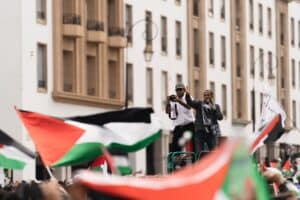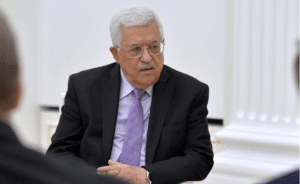The two largest Palestinian parties, Fatah and Hamas, have reconciled and are promising elections within six months. It is the recent normalisation agreement between Gulf states and Israel that brought the different factions together. Almost 15 years have passed since the last Palestinian elections took place.
Mahmoud Abbas, being the political leader of Fatah and the President of the Palestinian Authority (PA) and the Palestine Liberation Organisation (PLO), has met with Hamas political Chief Ismail Haniya in Turkey on the 22nd of September, after having met other Palestinian factions in the West Bank and Beirut earlier this month. This happened as a reaction to the normalisation agreements between the United Arab Emirates, Bahrain and Israel. The leaders of the different blocs decided to form one front as they fear the new agreement would put a possible Palestinian state in jeopardy. Abbas and Haniya came to the agreement to hold elections within half a year. Legislative elections will be held first. Then, presidential elections of the PA will follow. Lastly, Council elections for the PLO will take place.
Another false promise?
Another point that was unanimously agreed on during the meeting in Turkey, was that elections will only take place when not only the West Bank, but also Gaza and East Jerusalem will partake. However, this may not be possible, since Israel dismissed the latest request of the PA to allow the Palestinians in Jerusalem to vote.
Hamas and Fatah have tried to reconcile multiple times since 2007, but failed on every occasion. In addition, elections have been promised at different points in time, but were never held. Abbas’ four-year presidential term had officially ended in January 2009, but since no successor was chosen by the Palestinian people, he remains in power almost 11 years later.
The demand that East Jerusalem has to partake in the elections, which will likely not be allowed by Israel, as well as the numerous previous empty promises and reconciliations might be a recipe for yet another disappointment for the Palestinians. However, never before have the Palestinian factions had to deal with the current climate of Arab states normalising relations with Israel. Feeling betrayed by their fellow Arab governments, they may have recognised that their real allies in creating a Palestinian state remain within the borders.
Two governments after the Battle of Gaza
The PLO, with main party Fatah, and Hamas broke in 2007 after intense fighting in Gaza, splitting the government in two. The parties have many differences. Hamas is Islamist, stated it will never recognise Israel and uses armed resistance against it. Fatah on the other hand is secular, has recognised Israel between 1993 and 2018 and uses negotiations rather than armed resistance. Their main similarity is that both parties accept a Palestinian state on the 1967 borders.
When Hamas won the legislative elections in 2006, the party was not able to fulfil governmental duties, including paying salaries. The European Union (EU) had been a financial provider for the Palestinians for many years by that point. However, since the EU considers Hamas to be a terrorist organisation, they stopped their funding when the party won the elections. This was a big problem for the PA.
In June of 2007, tensions got so high that the Battle of Gaza started. More than 100 Palestinians died and Hamas took sole control of Gaza. President Abbas dismissed the government, but Hamas did not recognise this move. From then on there were two administrations; Hamas in Gaza and the PA, with main party Fatah, in the West Bank.
Sources: Aljazeera1, Aljazeera2, Aljazeera3, Anadolu Agency, BBC1, BBC2, ECFR, Reuters, Times of Israel
Image: Wikipedia



